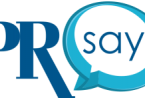Editor’s note: The following is a guest post from Rod Brooks, president of the Word of Mouth Marketing Association (WOMMA) Board of Directors and vice president and Chief Marketing Officer at PEMCO Mutual Insurance Company in Seattle.
The rules of the game have changed. No longer is consumer behavior driven exclusively by traditional marketing and advertising, or by the influences of mass-media opinion-leaders.
Today those consumers are making decisions after hearing the opinions of peers, friends and even strangers. Most often, those new, powerful lay-influencers make their opinions known online, completely outside the influence of traditional public relations.
This developing behavior among consumers presents both a dynamic challenge and emerging opportunity for marketers and public relations professionals. As the influencer-centric movement gains momentum, professionals in our industry have been identifying ways to capitalize on this new behavior, and rally around a need to revisit our professions’ ethical guidelines to ensure we share a strong foundation of high ethical standards in this new space.
Can we adapt the ethical guidelines our professions have created for our work in the more traditional aspects of our trade to this new, evolving world of social media? And then, can we concurrently recognize the tools and tactics of this new approach change at dizzying speed, while still harnessing the power of social media to affect behavior among our target audiences?
Let me take this from the conceptual to a nuts-and-bolts application. Let’s say you see a Facebook conversation about your client or your company. Can you join that conversation? If you do, must you do so under your real name? Do you need to disclose that you have a professional interest in the conversation? Does it make a difference if you guild your comments as your “personal” point of view instead of your organization’s?
For many smart organizations, these may seem like fairly straightforward challenges, solved by following simple bright-line rules that most — if not all — reputable public relations and marketing agencies, along with in-house units of the same services, will agree have become standard ethical procedure. But not so long ago, platforms like Facebook were in their infancy and it wasn’t so clear. And by extension, as new applications evolve these bright lines will inevitably become blurred.
That is bound — if not certain — to happen again.
Some of our challenges lie in the certainty that technology will continue to change at an alarming rate. We now use the same tools for business intelligence as we do for our personal lives. As we continually find new uses for existing platforms, net-new tools will continue to enter the market daily.
Add to this the democratized nature of this technology — communication tools that were once in the hands of communications professionals are now readily available to line-staff employees, who often don’t draw distinctions between personal posts, and posts commenting on their employer, the competition or the competitive environment. In effect, employees become instant spokespeople — for better or for worse — by simply entering into online conversations with the click of a button.
This is just the beginning of a wave of new challenges faced by our industries and the influences on social media are boundless and perhaps even unknown.
My organization, PEMCO Insurance, was an early adopter of social media, and through its use, has gone a long way to level the playing field against larger, better-funded competitors. But we’ve also worked hard to follow the best practices in the ethical use of social media. The Word of Mouth Marketing Association (WOMMA) and other professional groups, like PRSA, are constantly helping organizations address these issues, while simultaneously establishing best practices for navigating this changing space.
WOMMA continually puts ethical communication and disclosure standards at the top of its priority list. Its set of engagement guidelines is an evolving document revisited annually. PRSA has a similar Code of Ethics that governs many of the same issues and applies parallel principles to solving ethical engagement dilemmas.
These are good standards to use and follow, but with due respect to WOMMA and PRSA, no matter how hard these organizations try, they won’t be able to keep up with change. We will all need to find ways to govern our own behavior. Ethically driven companies will need to rely on the core principle — the common DNA — shared by WOMMA and PRSA: transparency, honesty and disclosure.
If, as practitioners, we don’t police ourselves, and continue to help organizations like PRSA and WOMMA set reputable standards, I’m afraid the outcome will not be pleasant.
The Federal Trade Commission has been exceedingly effusive in praising WOMMA for its role in setting standards and guiding the conversation. PRSA has received similar praise for its efforts, as well. But it only takes a handful of bad actors to change that relationship. If, as an industry, we fail to follow that ethical line, we could find ourselves hamstrung by regulations, restrictions and subject to higher risks of civil litigation. If that comes to pass, my fear is the “good guys” in the industry will give up the fight, leaving the practice of social media to the outlaws.







Rod: Wise words from a colleague. I’ll retweet this as I think all my friends can use a reminder that we are in a changing world but ethics standards still apply. Thanks again for your blog. Bob